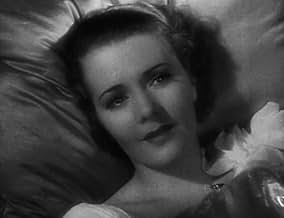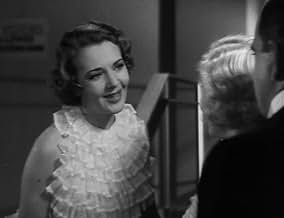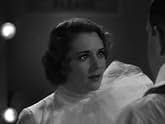Füge eine Handlung in deiner Sprache hinzuAl Howard may be a star on Broadway, but he is no longer welcomed by any producer. It seems that he just trots off to Mexico any time he wants causing shows to close and producers to lose mo... Alles lesenAl Howard may be a star on Broadway, but he is no longer welcomed by any producer. It seems that he just trots off to Mexico any time he wants causing shows to close and producers to lose money. When his sister Molly can no longer find Al work, she teams him up with talented Doro... Alles lesenAl Howard may be a star on Broadway, but he is no longer welcomed by any producer. It seems that he just trots off to Mexico any time he wants causing shows to close and producers to lose money. When his sister Molly can no longer find Al work, she teams him up with talented Dorothy for a club date in Chicago. Flush with another success, Al wants to open his own club ... Alles lesen
- Für 1 Oscar nominiert
- 1 Gewinn & 1 Nominierung insgesamt
- Duke Hutchinson
- (as Barton Mac Lane)
- Nellie Lahey (Blonde Showgirl)
- (as Sharon Lynne)
- Tom McGee
- (as William Davidson)
- Herman Lahey
- (Nicht genannt)
- Wardrobe Mistress
- (Nicht genannt)
- Young Woman in Elevator
- (Nicht genannt)
- Angry Showgirl #1
- (Nicht genannt)
Empfohlene Bewertungen
Opening title: "BROADWAY: The street of ups and downs, where show business in 1935 was in top speed." Story: Al Howard (Al Jolson), is an irresponsible and egotistic entertainer responsible for his Broadway shows closing by not appearing. Al's sister, Molly (Glenda Farrell) comes to the Actors Equity Association with the assurance that this will be Al's last time that he will ever desert a show, but she is told by the producers that he is through on Broadway. Molly manages to get her old friend, Dorothy Wayne (Ruby Keeler), a dancer, to team up with Al in hope her partnership with him will lead up to his comeback. Dorothy agrees and she and Al become successful for the next several months appearing at Brown's St. Ledger Roof Garden. While Al treats Dorothy like a "kid," and philanders with other women, especially chorus girls, Dorothy, who resents being treated this way, unwittingly falls in love with Al and decides to leave the act. Molly, however, persuades Dorothy to remain and soon arranges to hire Duke Hutchinson (Barton MacLane), an underworld financier, to back Al's new night club engagement, The Casino De Paree, in New York. In the meantime, Al, who considers himself "God's gift to women," becomes entangled with Luana Wells (Helen Morgan), a blues singer who happens to be Duke's wife wanting to also make a comeback on Broadway by appearing at the Casino De Paree. Before opening night, Al is told by Dorothy, after receiving a phone call, that his sister Molly is in jail for murder. Al must decide whether to take the show's $30,000 to bail out Molly, or go on with the show as planned. If he abandons this show, the Duke will have his thugs awaiting for him outside.
Patsy Kelly, not mentioned in the above synopsis, provides true comedy relief in appearing in three separate scenes with Jolson actually unrelated to the plot as if she were added in at the last minute to boost up some comedy. In spite all, it helps the continuity along. Kelly is a laugh riot and not to be missed. Glenda Farrell, featured as Jolson's sister, known best for usually playing a wisecracking and fast-talking gold-digger, gets her chance on film to play a basically straight character. Farrell only has one scene that does involve comedy which takes place on a train where she encounters a British passenger (Arthur Treacher) after accidentally dipping him with ink. She even gets her chance to wear stylish wardrobes and fur coat.
Great tunes by Harry Warren and Al Dubin include: "Cielito Lindo" (written by Elpidio Ramirez and sung in Spanish by Jolson); "A Good Old-Fashioned Cocktail" (sung/danced by Ruby Keeler and chorus); "Mammy, I'll Sing About You" (Jolson); "About a Quarter to Nine," "Swanee River" (by Stephen Foster, sung briefly by Jolson in black-face); "The Little Things You Used to Do" (sung by Helen Morgan); "Casino De Paree," "She's a Latin From Manhattan," "Go Into Your Dance" and a reprise finish to "About a Quarter to Nine" (all sung by Jolson). During a night club sequence earlier in the story, there is an underscoring by a band to the tune, "'Cause My Baby Says It's So," but is never sung in the story. Possibly an intended song for this movie but scrapped before release. That song would finally be heard and fully introduced by Dick Powell in "The Singing Marine" (Warners, 1937).
Also in the cast are Akim Tamiroff, Sharon Lynn, Phil Regan and Gordon Westcott. While Benny Rubin gets screen credit, he has only a tiny bit at The Caliente. I did recognize former silent screen actress, Mary Carr, famous for sentimental mother roles in the twenties, briefly scene as a wardrobe woman.
"Go Into Your Dance," available on DVD and occasional viewing on Turner Classic Movies, is 89 minutes of solid entertainment, highly recommended as it is entertaining. And as Jolson would say whenever being truthful and sincere, "A word of a Howard." (***1/2)
His sister. Molly (Glenda Farrell) finds Al in Mexico, sobers him up, and gives him the news. He doesn't take it seriously at first, but then when he can't get another job he sees the direness of the situation. His sister gets him a partner - dancer Dot Wayne (Ruby Keeler) and he is able to get a spot in a revue based on the good reputation of Dot.
But then Al decides he wants to headline once again, so he gets the financial backing for his own Broadway show. Unfortunately, the only place he can get that money is from gangster Duke Hutchinson (Barton McLane). Even more unfortunately, the Duke's wife (Helen Morgan) and Al start playing around under the Duke's nose. Meanwhile, Dot has started to fall for Al, but he thinks of her as a kid. Complications ensue.
This turned out to be better than I at first anticipated, with lots of good numbers by Jolson with the standout being "A Quarter To Nine" and subplots that include a gangster angle and even a murder mystery involving someone who is wrongfully accused. There's also a short number that may have inspired Buster Keaton a year later. In it, Al is testing Dot's assertion that she can dance to any music. He plays a highland fling, a Russian song, and other international tunes in rapid succession as she tries to keep up. Keaton did something similar in one of his best sound shorts "Grand Slam Opera" in 1936.
With Patsy Kelly as a vaudevillian who keeps popping up and who badly wants to team with Al, and with baddy Barton McLane and Glenda Farrell in their first film together but not interacting at all, this is worth your time if you appreciate the Warner musicals of the 30s. And it's not even hampered that much by the onset of the production code.
What hurts 'Go Into Your Dance' the most is the story, which is flimsy and contrived, as well as trying to combine backstage musical and gangster drama. The backstage musical stuff has been done so many times before and since, and much better, here it doesn't always have much spark, while the gangster drama stuff doesn't gel with the rest of the film.
Jolson sounds great, but is a little stiff as an actor at times and fails to make his character rootable. Despite being married to Keeler, to me Keeler had a sweeter and more natural chemistry with Dick Powell. Fred Toones is also obnoxious, and the film has a point around the half-way mark where it drags to just before the final production number.
However, 'Go Into Your Dance' is a good-looking film and nicely directed. The songs are very tuneful and at their best great, the highlight being "About a Quarter to Nine" with "She's a Latin in Manhattan" close behind. Surprisingly good are the choreography and dancing, have often been indifferent to Bobby Conolly, but he does a great job here with the final production number being particularly imaginative and energetic.
Keeler is very charming and likable, even if her dancing is not always great. Helen Morgan knocks it out the park with her powerful rendition of "The Little Things You Used to Do", and Patsy Kelly is a lot of fun. There is often a good natured feel to the film as well.
Overall, fun if flawed film. 6/10 Bethany Cox
What Go Into Your Dance really was meant to do is try to save the Jolsons marriage which was in free fall by then. Al's egomania didn't make him the easiest person to live with and within a few years Keeler called it quits. For the rest of her life she would never answer one question about life with Jolson.
Warner Brothers did assemble a good cast for them. Al plays an irresponsible, egomaniacal entertainer, no stretch in the casting department. He's walked out on too many a show as his sister Glenda Farrell tells him, no producer will hire him. Never mind says Jolie, he'll produce his own with a new dancer he's discovered, Ruby Keeler.
Producing costs money and that means going to gangster Barton MacLane whose trampy wife wants to resume her show business career. Jolie gets the money and the wife played by Helen Morgan. But his problems are only beginning.
Bobby Connolly did the dance direction and I have to say pinch hit admirably for Busby Berkeley. The big hit song of the film was Jolson singing and Keeler dancing to About a Quarter to Nine. It was nicely staged and worthy of Berkeley in every sense of the word as Berkeley gave Jolson that awful Going' to Heaven on a Mule in Wonder Bar. In this film the chorus of male dancers and Jolson all turn to blackface for a minute. Jolson also does the finale title song in blackface as well.
Unfortunately not only does Jolson do blackface, but in this film, not once, but twice he rubs the head of black actor Fred "Snowflake" Toone for good luck. That particular bit of tastelessness kept Go Into Your Dance off the television screens for decades. I remember seeing it on WOR TV's million dollar movie as a lad in the Fifties, but never again until recently.
The real pity is that we were also deprived of seeing Helen Morgan sing as well. Her alcoholism had gotten pretty bad at this point, but she was one of Broadway brightest stars. She sings The Little Things You Used to Do in her typical poignant fashion. It would have really been great to see her co-star with Jolson in a film, but that was not to be.
Go Into Your Dance is quite a museum piece of a film and if you're not into Jolson, I would urge you to see it for Helen Morgan.
WUSSTEST DU SCHON:
- WissenswertesFollowing the sensational success of Columbia's Der Jazzsänger (1946), Warner Bros. decided that Al Jolson's revived fame was a good reason to reissue this film. Although there were no changes or censor cuts, Warners did make up new opening credits, which added the famous later Warner "fanfare" and gave Jolson solo over-the-title billing. (Originally he and Ruby Keeler had both been given star billing. She was now listed in smaller print, with the rest of the supporting cast.) Additionally, the studio added a written prologue to make sure audiences knew that the story was set back in the long-ago and far-away time of 1935.
- Zitate
Dorothy Wayne: Well, I finally met your brother.
Molly Howard, aka Lucille Thompson: Yeah, where is he?
Dorothy Wayne: Flat on his back, out cold, back of the Shim Sham.
Molly Howard, aka Lucille Thompson: What happened to him?
Dorothy Wayne: Well, man meets girl, girl meets husband, husband meets man, man meets sidewalk.
- Crazy CreditsOpening card: Broadway..The street of ups and downs, where show business in 1935 was at top speed.
- VerbindungenEdited into Musical Memories (1946)
- SoundtracksGo Into Your Dance
(1935) (uncredited)
Music by Harry Warren
Lyrics by Al Dubin
Played during the opening credits
Played during a rehearsal and sung by Al Jolson
Also performed by Al Jolson at the Casino De Paree at the end
Top-Auswahl
- How long is Go Into Your Dance?Powered by Alexa
Details
- Erscheinungsdatum
- Herkunftsland
- Sprache
- Auch bekannt als
- Casino de Paree
- Drehorte
- Union Station - 1050 Kettner Boulevard, San Diego, Kalifornien, USA(exterior establishing shot of the Santa Fe Depot)
- Produktionsfirma
- Weitere beteiligte Unternehmen bei IMDbPro anzeigen
Box Office
- Budget
- 703.000 $ (geschätzt)
- Laufzeit1 Stunde 29 Minuten
- Farbe
- Sound-Mix
- Seitenverhältnis
- 1.37 : 1
Zu dieser Seite beitragen



























